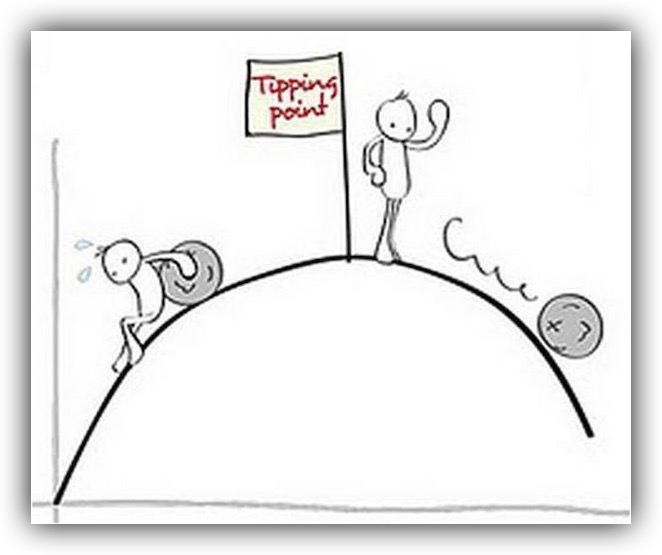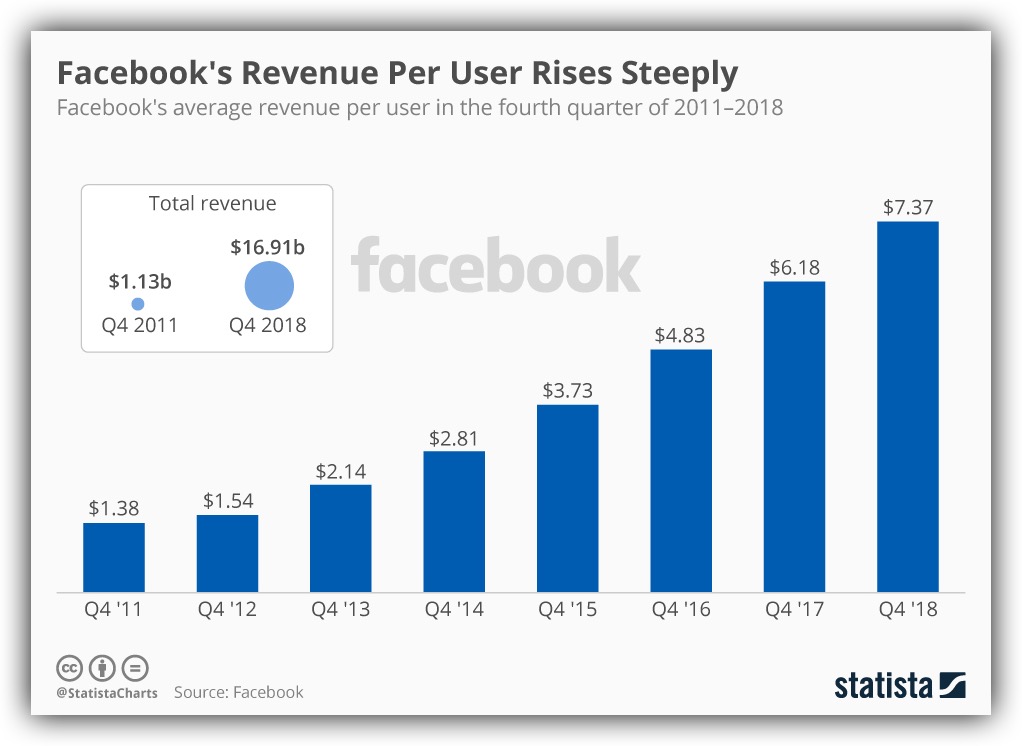Facebook Ads Used To Be As Easy As “Shooting Fish In A Barrel”
Running Facebook ads used to be easy.
And I mean, like really, really easy.
In fact, running Facebook ads used to be so easy that almost everyone was making money running them…
Back in 2016, 2017, and depending on the market even 2018, getting Facebook ads profitable really was as easy as shooting fish in a barrel.
But, if you’ve been running any Facebook ads over the last couple years, you’ll know that this all changed. And it will never be the same again.
Never.
All Of The Data In The World
If I asked you a few years ago, if virtually every single website that sells something online would give away ALL of their purchase data FOR FREE…you’d probably say I was out of my mind…

But that’s exactly what everyone did when they installed the Facebook Pixel on their site.
And we’re not talking about a small amount of data either.
We’re talking about literally every detail, of every trackable event, on virtually every single website on the internet.
We’re talking about every purchase, the value of that purchase, the number of items, the product category, etc. etc.
…and Facebook didn’t stop there. Facebook even purchased data on its users from data brokers to learn more about their offline lives as well.
And then, Facebook took all of this data and matched it with every user on their platform…thanks to everyone for using the Facebook platform and the Facebook mobile app (which is tracking your every move…even if the app isn’t on).
And, as a result, Facebook literally was able to create…
The Most Powerful Thing
To Ever Exist In The History Of Advertising
The Facebook Algorithm.
And more specifically, the combination of the data Facebook has on every single user on Facebook, combined with the Facebook advertising algorithm.
And man, oh man, was this algorithm powerful.
Almost instantly after sites began to install the Facebook Pixel, the Facebook algorithm was able to start matching users with ads and offers with uncanny (and almost creepy) accuracy…
…the algorithm is so effective it sometimes feels like it can read minds.

But this was still a relatively new and unproven marketing channel, so even though almost everyone had a Facebook account and was active on it daily…almost no big companies (with big ad budgets) were advertising on the channel yet.
So, Facebook had created the most powerful thing to ever exist in the history of advertising…
…almost every person was using Facebook every day…so there was a TON of ad inventory available…but, overall there wasn’t very much money being spent on the platform.
And since Facebook ads is an auction, when there was more supply and less demand, the advertising costs were tiny.
A Perfect Storm

With an algorithm capable of almost reading the mind of Facebook users, combined with ad costs cheaper than almost anywhere else online…
It created a perfect storm, where essentially anyone could make a profit running Facebook ads.
And the early adoptors were literally printing money.

But, because Facebook was desperate for advertisers and ad revenue, they turned a blind eye to unscrupulous dropshippers, affiliate marketers promoting sketchy auto-rebill offers using deceptive advertorials, etc., etc.
And boy did these scammers flood to the platform. And boy did they make a killing.
The brands that jumped into Facebook ads early made money.
Facebook made money.
But this was all at the expense of their users who were getting systematically duped and scammed…
As a result of being disappointed and ripped off too many times when buying from Facebook ads, users began to lose trust in buying from these ads.
And, users’ trust only continued to drop after the Cambridge Analytica scandal.
…no wonder it’s gotten harder to persuade people to buy from your Facebook ads.
But at the same time, something else was occurring…
The “Tipping Point” Had Happened

Because the early adoptors were making so much money using Facebook ads, other companies began to flood to Facebook ads as well.
The tipping point had occurred and there was no going back…
And, because those who were already advertising were making so much money, they kept spending more and more and more on ads.
As a result, the ad auctions got more competitive…and prices began to rise.
But, since all of the legit businesses were now advertising on their platform…Facebook no longer needed all those scammers anymore.
So, Facebook began to weed out these businesses and make it harder for them to make money and survive on their platform.
As these scammers left the platform to spend their money on less scrupulous ad platforms, it helped keep ad competition and costs in check (at least for a little while).
But, because Facebook ads was the most profitable channel for almost every company that sells online, advertisers continued to increase their budgets every month and spend more and more on the platform.
And, at the same time, more and more companies flocked to Facebook and began advertising.
And many of these companies had big, big budgets.
And this time, Facebook didn’t have any scammers to push off the platform.
And, by this time, Facebook didn’t really have any way to grow users in most countries, because almost everyone was already on Facebook.
So…
Ad Costs Kept Rising

As more and more advertisers came to the platform, costs just kept rising as the Facebook advertising ecosystem matured…and ad costs came more in line with value.
As a result, getting ads profitable became harder. And, it became harder to just print money with Facebook ads than it used to be for most advertisers.
And this leads us to where we are today, with business owners saying things like…
“Facebook Ads Don’t Work Anymore”
(Or Do They?)
And, in a way, these business owners aren’t wrong.
First off, they are correct that Facebook ads aren’t working for them…
But – What about those companies that are still growing like weeds using Facebook ads?
What do the businesses who are killing with Facebook ads in 2019 know that all of the other companies who are struggling do not?
Click here to learn what these winning businesses are doing…

© 2019 Adversponse Communications Inc.
Privacy Terms Disclaimer
